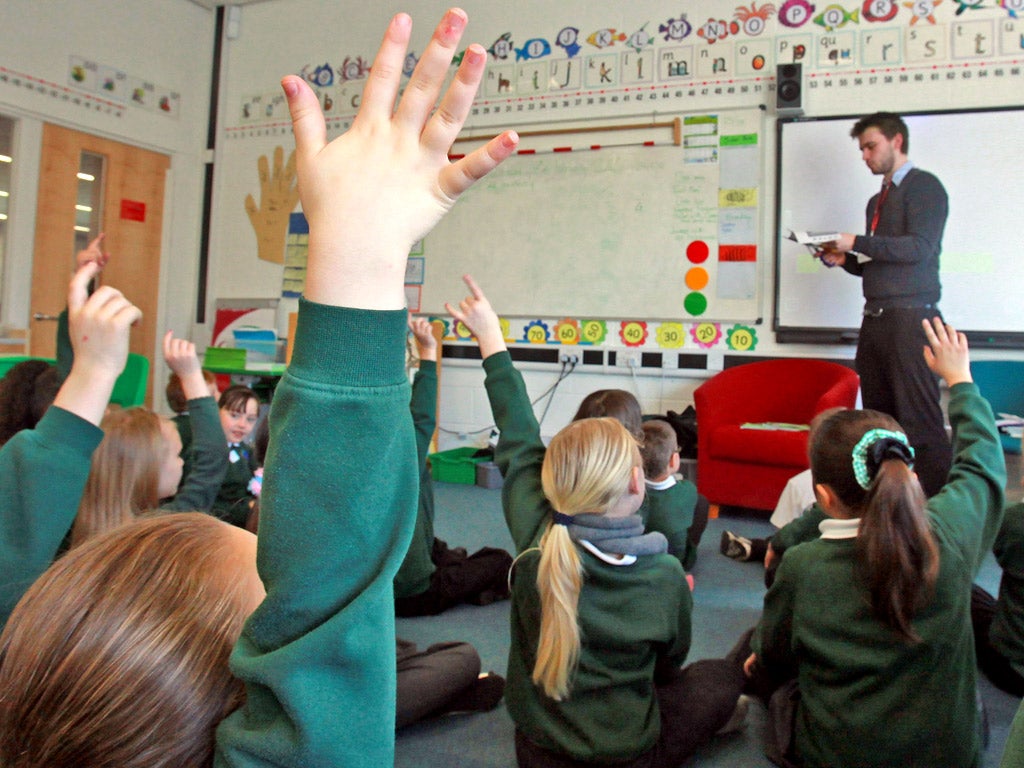Michael Gove creating 'neo Victorian' curriculum for primary schools, says professor who led massive review into sector
Robin Alexander argues core subjects of English and maths would be favoured at expense of arts and humanities

The man who headed the most comprehensive inquiry into primary education for at least four decades has dismissed the Government's new national curriculum as "neo Victorian" and "educationally inappropriate" for the 21st century.
Professor Robin Alexander, of Cambridge University, argued that the new primary curriculum would mean a "two-tier curriculum" favouring the core subjects of English and maths at the expense of the arts and humanities.
"Such stratification is both educationally inappropriate and pedagogically counter-productive," he argued in a lecture at the British Academy to mark the setting up of a new trust to promote the findings of his inquiry.
"The two-tier curriculum undervalues not just the true cultural and economic worth of the non-core subjects but also the evidence from research and inspection showing that learning in one area enhances learning in others," he said.
"Without deflecting attention one jot from the absolute imperative of literacy, the Cambridge Review (his inquiry team) argues for a primary curriculum whose core includes essential knowledge, skills and experience drawn from all subjects, not just three of them.
He took ministers to task over their claim that the job of primary schools was to make their pupils "secondary ready".
"Of course children leaving primary school should be ready for what follows but education also resides in the quality of the here and now. Anyway, what follows year six (the final year of primary school) is life, not just year seven," he said.
"While primary schools must and do insist on the foundational importance of literacy and numeracy, they should also lay those other foundations - in science, the arts, the humanities, in physical, emotional and moral development and in lived experience - that in their way are no less important for young children's future learning, choices and lives: foundations, we might suggest, that will make children more truly 'secondary ready' than if they do the three Rs and little else."
He was also critical of the dismissive attitude show by the Government to critics of their plans, arguing "the bearer of evidence which is questionable but ideologically compliant is hailed as the only true expert while the bearer of evidence that is sounder but politically unpalatable is pilloried".
"Thus, those who in March (in a letter to The Independent) proposed an alternative national curriculum vision were denounced as 'enemies of promise' and 'Marxists hell-bent on destroying our schools' and those who this month raised perfectly legitimate questions about the kind of early years' experience that will help children to thrive educationally were accused of 'bleating bogus pop-psychology', dumbing down and lowering expectations.
"It's proper to ask whether heaping public abuse on those holding different views is what government ministers in a democracy should be doing."
Professor Alexander recalled that his original report - which advocated a broader curriculum and less emphasis on tests and league tables - recalled that the previous Labour government had refused even to discuss most of the evidence with the inquiry team and had misrepresented its findings to the media. At least with the present government, he added, the criticisms were more "cultural".
However, he argued: "Policies have little meaning until they are enacted by schools." Much of the review's time was spent help schools to "domesticize" or even subvert government initiatives to their own particular circumstances.
A spokeswoman for the Department for Education said: "It is utterly unacceptable that so many children leave primary school without a firm grounding in the basics of English, maths and science. That is why our rigorous new primary curriculum focusses on these vital subjects.
"Of course we expect primaries to teach beyond just English, maths and science. That is why we are giving teachers more freedom than ever before, allowing them to shape lessons to meet the needs of the pupils they know best."
Subscribe to Independent Premium to bookmark this article
Want to bookmark your favourite articles and stories to read or reference later? Start your Independent Premium subscription today.

Join our commenting forum
Join thought-provoking conversations, follow other Independent readers and see their replies